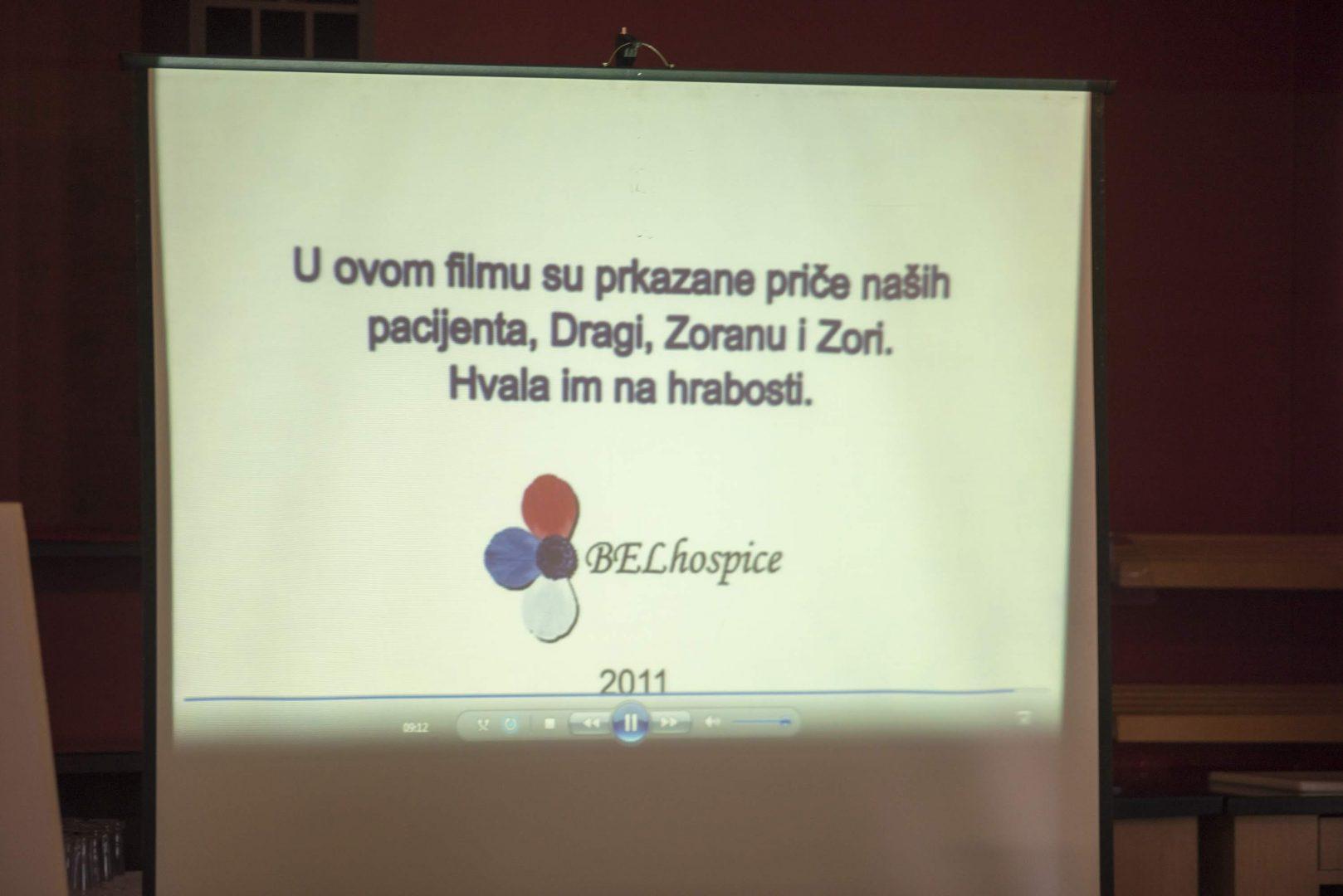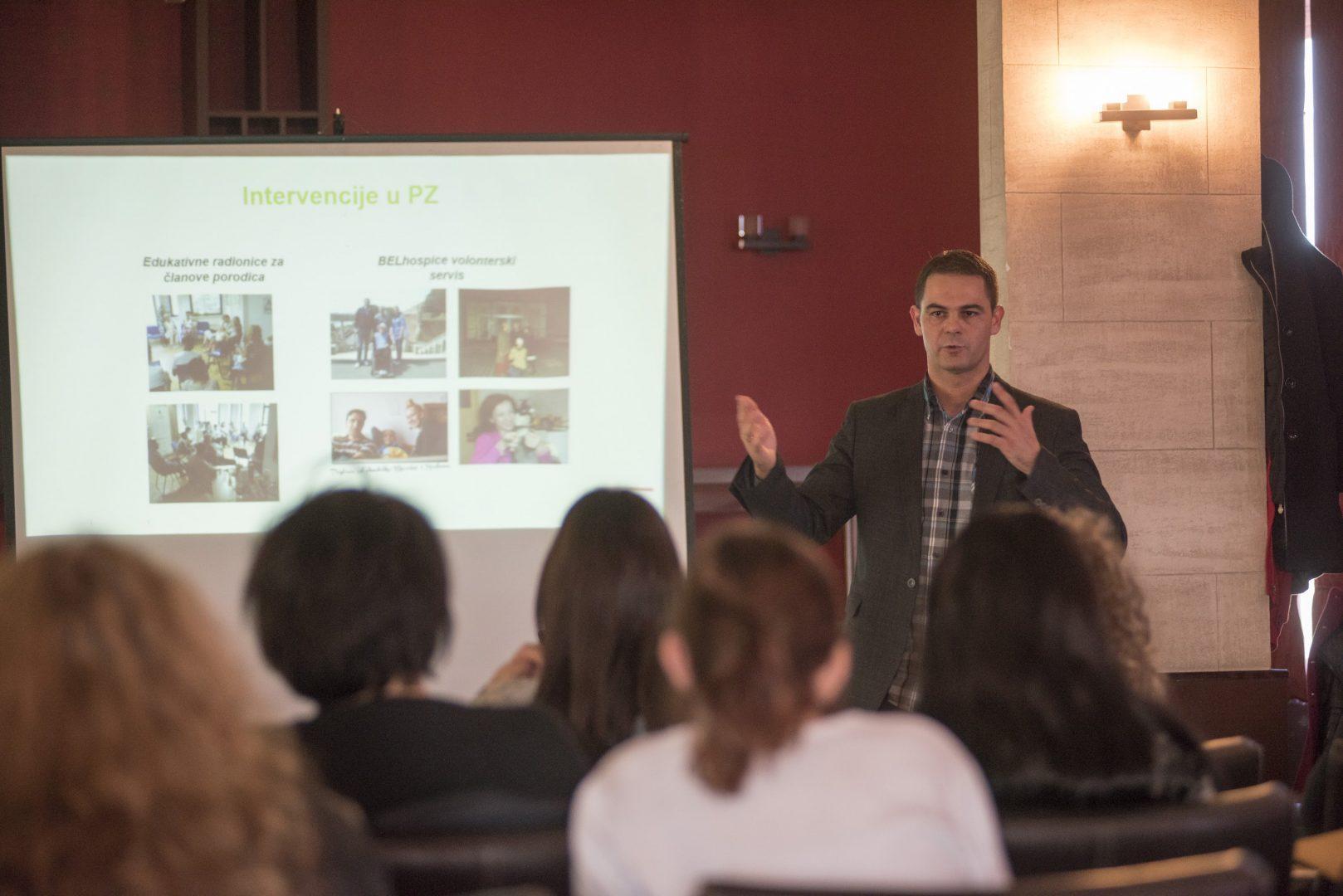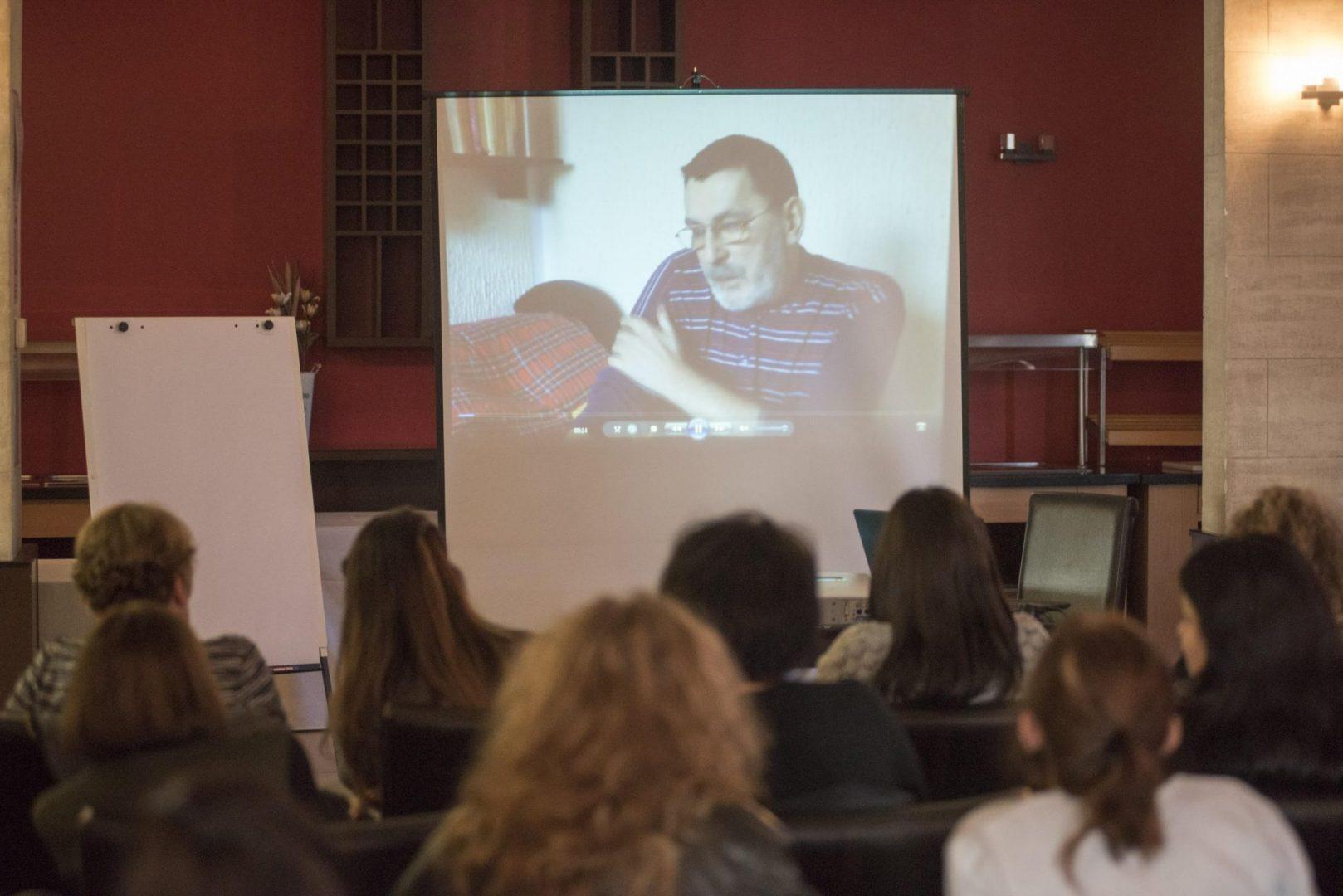- Bereavement counselling is given to all family members equally‚
YES/NO - Only professionals should tell children the truth
YES/NO - A social worker is part of the basic palliative care system
YES/NO - Understanding a family as a system helps understand the behaviour of its members
YES/NO
In the mini-quiz above, you can test your knowledge about palliative care, specialised care for people with serious illness. Palliative care is in its infancy in Serbia. To educate social workers about it, courses are held across the region. The Centre for Palliative Care BELhospice held a two-day course in Sremska Mitrovica on 30 and 31 January 2020. It was attended by professionals from Šid, Lajkovac, Mionica, Ruma and Pančevo.

Palliative care is provided to patients with terminal illnesses, from cancer, severe heart disease, neurological diseases, dementia, and AIDS to children with disabilities and the elderly, together with their family members. Statistics show that 20,000 patients die from cancer and 30,000 patients are diagnosed with cancer in Serbia every year, which indicates a need for better understanding and strengthening of palliative care. “It is estimated that for every euro spent on palliative care, the taxpayer saves three euros”, says Mijodrag Bogićević, a social worker at BELhospice.
Palliative care is not only medical care but also psychological, social and spiritual support, which is often lacking during an illness, and therefore a part of comprehensive social care. It is not just for the patients but also for their family members, who are often faced with new responsibilities. The key objectives of the training are to minimise the prejudice and shame that often accompany the illness, to encourage people to ask for support and to train professionals to provide the best possible support.
The training is supported by the project Social Services for Vulnerable Groups, which is implemented by GIZ. The next course is scheduled for 10-11 February in Banja Koviljača.

(Key: 1. NO, 2. NO, 3. YES, 4. YES)


